https://www.theguardian.com/science/2023/jan/01/why-everyday-stress-could-be-the-key-to-a-healthy-old-age
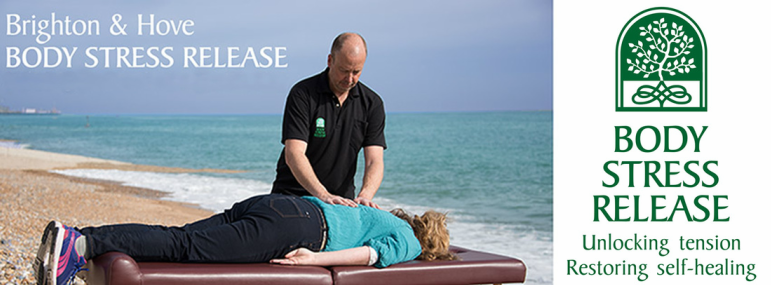
|
|
|
Stress doesn't have to be negative. Really interesting article in the Guardian about the positive side of stress.
https://www.theguardian.com/science/2023/jan/01/why-everyday-stress-could-be-the-key-to-a-healthy-old-age
0 Comments
We are hopefully moving out of the pandemic and lockdown, but you could be feeling the effects on your body. I have increasingly found clients reporting that the ongoing situation has led to a feeling of under lying tension or body stress that is leading to a feeling of overall tension, fatigue and lack of energy, stiffness headaches/migraines or tight shoulders. By releasing the tension or 'body stress' that is stored in the muscles that sit over the important spinal nerves, Body Stress Release (BSR) restores the body's natural self ability to heal and provides relief from pain. The obvious signs of body stress are pain, stiffness, numbness and postural distortion. Other clues are general fatigue and a lack of energy and zest for life. Starting as small aches, and little 'niggles' these pains are often ignored in the hope they will go away. Over time these symptoms start to worsen but, with nothing obvious to blame them on, we tolerate our suffering in silence or begin to accept them as normal.
By releasing the tension or 'body stress' that is stored in the muscles that sit over the important spinal nerves, Body Stress Release (BSR) restores the body's natural self ability to heal and provides relief from pain. If you'd like to try it, give us a call on 01273 321431 or for more information have a look at my website, http://www.releasemystress.co.uk
Watch your posture! This how stress gets stored in the neck & shoulders. This week is Stress Awareness Week, so what can help with stress? The word 'stress' normally has negative connotations, however, Stress can be and is positive. We all need positive stress in our life's. It is one of our vital warning signs, within our bodies system producing the "fight or Flight" response, in which chemicals kick in & send blood to the correct parts of the body, for survival, feeding our muscles in readiness to react, fight or run away from dangers present. Stress, however, becomes bad for you when the amount of stress increases to a level that which you can no longer adapt to. At this point you have reached stress overload. When you have reached this point, and we all do sometimes, here are a few tips to help. 1. Take a break Try stepping away from a stressful situation. Give yourself permission to take a break, whether it's a difficult work situation, family issues, or unpaid bills. Allow yourself, even 20 minutes to get some fresh air, go for a walk, take time out. You can't avoid your stressors forever, but a break can give you perspective. 2. Exercise This can be a great way of lifting your mood, and distracting your over active brain. Exercise will get the endorphins flowing, lifting your mood for hours afterwards. Whether you run, cycle, swim or walk, exercise can really lift you stress. 3. Meditate Meditation, mindfulness or any similar technique has also been proven to be an excellent way of helping the body and mind relax. Often people are able to view their problems with a new perspective, allowing them to reduce stress levels. 4. Body Stress Release BSR or other similar body techniques can really help your body let go of stored up stress. Mental stress often leads to physical stress being stored in muscles, which then affect the under lying nerve path ways, and the body's capacity to heal. Often the physical effects of stress can end up feeding the mental anxiety. Find out more about Body Stress Release here 5.Connect with others Sharing your feelings and concerns with others. Try and reach out to someone who can understand your concerns or issues, without being involved in them. Talking with a sympathetic listener will help ease your burden and give a sense of perspective. 6. Smile
It may sound simplistic, but smiling can help lift our mood. Our facial expressions and emotions are connected with our brains. By smiling or laughing we relive tension, lift our mood and get good reactions from those around us. Fascinating article about how are society deals with back pain, including the dangers of surgery, overuse of MRI scans and pain killers.
'Rather than trying to find a doctor who can make the pain disappear, we need to be aware that to a certain degree, it is a part of life and the best approach is to keep physically active in the right way, to find a strategy to manage stress and to keep on with normal activities. Like all complicated pain, avoiding it, trying to use a substance to blot it out, investing in one person the belief that he or she can cure you: that all makes it worse.' Find out more here... #HypertensionDay today and in our stressful times, it is important that we are aware of the effect of our stress on our blood pressure and therefore monitor it regularly. This article by Mayo Clinic https://cstu.io/5f5dda - highlights the effects of Hypertension on ones organs and vitals. Our Association can attest to many case studies in which clients with Hypertension symptoms have benefited from Body Stress Releases and brought their Hypertension back under control. from Body Stress Release, official
In the army you are pushed every day and challenged to go beyond your limits, especially physically. "Go go go", and " persevere "! Only when you go through the pain do you reach the next level of fitness. And if you think your body can no longer do it, it actually has a bit more to offer. This same view is also common in many branches of sport. One of the biggest problems for amateur sports people is the failure to rest, and look after the body. Actually you are taught: "Do not listen to your body, but tell it what you want it to do". But this is a wrong approach to the body. The body is miraculously assembled. It has a great self-healing ability that can only function optimally if we respect it and take good care of it and listen to what it means that is good for us. When we drive a car we pay close attention to the temperature of the car, check oil level and petrol level because we know that an overheated car or a car without petrol will not bring us far. This we should actually do the same with our body. We can buy a new car but there is only one of our bodies and we can not replace it.  During sports activities, the body is exposed to many different types of stress. All people have a different point where stress becomes too much. If stress becomes too much, the body will protect itself by sticking muscles over a certain area and thus limiting the mobility of affected joints. During that process the stress can be stored in the body. If there is more tension than the body can handle, it is stored in the system. In a report on sports injuries recognized by the European Community, the following conclusion is reached: "In most sports, it is not the question whether an athlete will overcome his injuries, but when and to what extent an injury will occur. Many of the injuries are not caused by a sudden event, but by what is generally known: excess. This means that a certain part of the body simply can no longer handle the regular pressure of the training without "getting stuck".
Children and teenagers are often asked too much during sports at school or sports clubs, which can fix physical 'stress' in the body. Because they are young, we do not see this as stress. The symptoms that the children receive are then described as "normal",growth pain, headaches, abdominal pain. Sports activities can also lead to emotional stress. This is then caused by competition in the sport, having to perform and having to win at all costs and disappointment / frustration due to loss or not being in shape. The third category of stress is chemical stress. Chemical stress can be caused by, for example, dehydration or too much fluid intake, but also by inhaling exhaust fumes during jogging or inhaling other unhealthy substances. But still, all the possibilities that sports people have to build up stress and get injured do not weigh up against the health importance of sport. So how can you intensively practice a sport as much as possible and at the same time take good care of the body? Regular visits to a BSR practitioner provide a number of benefits. To begin with, a release of the muscles gives new energy. If muscles tense themselves to protect a certain part of the body, it costs the body a lot of energy. Energy that should actually be available improve sports performance. If the muscles are released through BSR and thereby relax again, extra energy is released, which benefits improved sport performances. 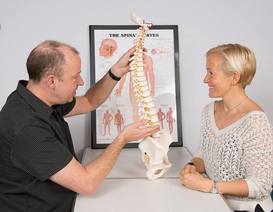 A tightened muscle has only a small part of its stretch capacity. This stretch capacity and the suppleness of muscles is greatly improved by BSR. This, again, increases the performance level. One client, a 36-year-old man, was a runner and suffered from a tight hamstrings. He told us that he did exercises every morning to stretch the hamstrings. He did this by touching his toes with stretched legs. He could hardly believe that this exercise actually only aggravated the problem. The exercise of touching the toes caused, by bending the back so far, more irritation of the nerves in the lower back and thus caused the problem in the hamstring because the nerves from the lower back to the legs. After treatment with BSR and stopping the exercise, the man discovered that he no longer suffered from his tight hamstrings. Body Stress Release helps faster recovery after exercise, and allows athletes and sports people perform to their optimum level, with a better understanding of the integral functioning of the body and how to care and respect the body. |
Rob Petherick
Body Stress Release Practitioner in Brighton & Hove. Archives
March 2023
|
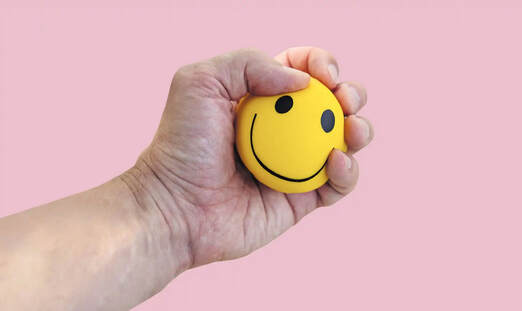

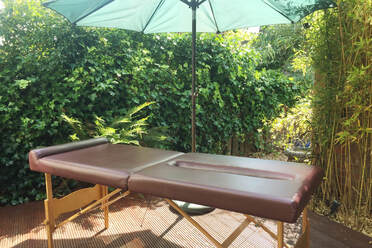

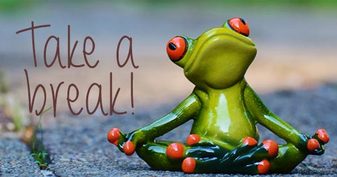
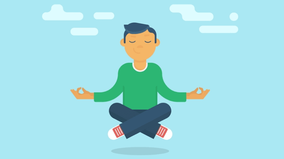


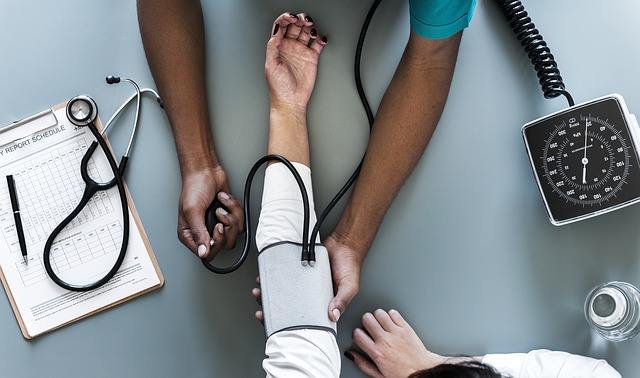


 RSS Feed
RSS Feed
